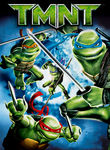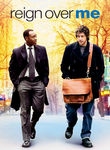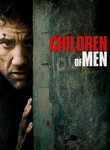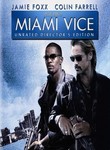Yesterday, AMC Theatres held at many of their United States locations a marathon of the five films nominated for a Best Picture Oscar. First up on the docket was Babel, Alejandro Nametoolongez Inarritu's follow-up to his last underwhelming exercise in pretention, 21 Grams. It was a great surprise when it turned out to be by far one of the better films of the day. We open in a Moroccan desert with the sale of a rifle from one local to another - the intention is to aid in the protection of goat herds. The young brothers in charge of the jackal sniping, however, decide to test the weapon's range on a passing tour bus, injuring an American tourist. This event, in familiar Innarritu (and obviously realistic) fashion, sparks a series of events that drastically impact peoples' lives the world over (hence the title). This is, of course, a topic we've seen a great deal in recent films but it remains compelling when done well, as it is here.
Rinko Kikuchi and Adrianna Barraza are entirely deserving of their accolades as they were definitely the two brightest spots in the cast. Elle Fanning was nice to see in there since I haven't seen anything she's done since The Door in the Floor.
Inarritu uses unnerving compositions that more mainstream directors usually reserve for shock shots (I.E. Alfre Woodard's big moment in The Forgotten) and really puts the audience on edge, expertly balancing the experience with what we know is about to happen and what we can only presume might occur. When the intense scenes pick up they sink their talons deep and don't let go until we can be absolutely sure all is well (and I use "well" loosely).
I would not at all be surprised if this picks up the Best Picture award tonight. Even if you are like me and didn't like 21 Grams, check this one out, just don't pay attention to the obligatory - and thankfully very minor - 21 Grams-ism at the end.
The Queen (Stephen Frears)
Second up in AMC's Best Picture Showcase was The Queen, a film that I hadn't heard of until I caught its trailer in theaters some months back. The trailer had me groaning - I don't care about the modern royal family nor did I have any sort of investment in the Lady Diana story. I remained open to the experience though, hoping to at least be impressed by the impeccable Helen Mirren's already notorious portrayal of HM Queen Elizabeth Windsor.
Mirren immediately strikes people familiar with Elizabeth with a great resemblance thanks to her solemn demeanor and makeup, but her performance isn't something I'd consider highly notable simply because while the film's alleged feat is probing the Queen's personal life, the real figure is portrayed to be very much the same sober person publicly as she is privately, subsequently restricting Mirren. To me the film was just as much about Tony Blair's first few months as Prime Minister as it was about Elizabeth's post-Diana days, and this is partly in thanks to Michael Sheen's fantastic performance. Sheen (known more widely for his turn as Lucian in Underworld) embodies Blair perfectly and will likely and unfortunately go unnoticed in America due to the strong Mirren hype.
The film itself was certainly better than I had expected, though director Stephen Frears seems to have handled it in the style of a romantic comedy despite the absense of both romance and comedy. Well, that last statement is not entirely true - there is some contrived humor here and there, and while it is occasionally funny it appears the opposite of realistic, a quality the rest of the film seems to aim for. The daring of the film's layout really lies in its confidence in its subject matter, particularly on the issue of the press and how it perverts the views of the public. Frears takes his time and paces the proceedings in a unique fashion that is surprisingly never boring. The only thing that really took me out of the grand illusion was during a scene when the Queen is supposed to be having an epiphany which is brought on by an imperial buck. This would be a really great moment were it not for the terribly obvious computer animation of the creature.
So would I recommend this? Not necessarily, but I am far from against it. It is a fine film, particularly for those interested in the royal family. The main thing you'll hear me talking about to anyone is Michael Sheen.
The Departed (Martin Scorsese)
Leo DiCaprio stars in his third Scorsese picture featuring a plethora of excellent contemporaries and predecessors the likes of Jack Nicholson, Alec Baldwin, Martin Sheen, Mark Wahlberg, Matt Damon and Vera Farmiga. Sound familiar? That's because everyone's talking about The Departed... and it deserves all the hype. Sure, you've also heard that it's not Scorsese's best film ever, but with that guy's resume you can't really complain. One thing's for damn sure, it's a fantastic, captivating experience about high level law enforcement and the Boston mafia with more than your fair helping of deception.
Watching this for a second time in theaters as part of the AMC Best Picture Showcase, I was able to really pick up on some of its finer points - the storyline draws you in so quickly that on a first viewing it's tough to catch it all. The majority of it is crisp and tuned to thrilling perfection, and when it's not there's a good chance it's intentional. Being my second viewing, the first half seemed less interesting (not worse, just less interesting) since I knew what was to transpire later, but the second half proved just as exhilarating if not moreso. I left the auditorium with my heart pounding and my speech accelerated.
Scorsese seems to have a close working relationship with his editors (I noticed this first in Gangs of New York) and it shows more than ever here. There seem to be several throwbacks to gang pictures of the past in scenes that absolutely work, but don't have a modern feel.
I have yet to see this film's basis, the Chinese Infernal Affairs series, but I wouldn't mind catching it. I would imagine garnering an even higher respect for The Departed through the experience simply because I'm sure Scorsese really expounded upon the material to make it his own.
Letters from Iwo Jima (Clint Eastwood)
I have never been a huge fan of Eastwood's directorial efforts but became intrigued by his idea to make companion films about WWII. Then I saw the first trailer for Flags of Our Fathers... it looked cheesy with its saturated Americana and I ultimately skipped it with little to no anticipation remaining for the Japanese perspective film that was still to come. Despite having low expectations for every nominee in the AMC Best Picture Showcase (The Departed aside, since I had already seen it) Iwo Jima was probably the one I ended up looking forward to the least.
To my great surprise, the only relatively valid complaint I can muster for the experience is that the subtitles were written in a terrible, squished font that had no outline, causing them to disappear against similarly shaded elements of certain compositions - and that might have just been the print that I saw. Eastwood delivers what appears to be a genuine portrayal of a perspective Americans are unaccustomed to seeing. The fact is, as can often be the case in warfare, both sides are comprised of good people unfortunately pitted against one another. That very point comes across well here without being drilled into our skulls.
Ken Watanabe does a fantastic job - possibly the best prolific role I've seen from him yet - as General Tadamichi Kuribayashi. He is joined by many faces that are widely unknown on these shores at this point in time.
I get the feeling that while I certainly didn't miss out on anything that Iwo Jima was offering as an individual experience, it would have been made all the more significant by also having seen Flags of Our Fathers. There were several scenes that appeared as though they could have been in either film, only structured differently in each to adhere to the respective outlooks.
I would absolutely recommend this piece to anyone who is mildly interested - it has defined how I view the battle in my mind, despite films like Saving Private Ryan having held that postion for so long.
Little Miss Sunshine (Jonathan Dayton & Valerie Faris)
This was the last feature on the AMC Best Picture Showcase schedule - a welcome finale after the previous four take-no-prisoners films (We'll keep The Queen on that list for funsies) that looked like a promise of a laugh if nothing more.
Little Miss Sunshine's first major scene takes place in a house that looks so authentically middle class and lived-in that it should have won some sort of award. It shows each of the characters to be defined by one particular characteristic, for example the father (Greg Kinnear) is constantly focused on being a winner as opposed to a loser while the son (Paul Dano) has taken a vow of silence until he reaches his goal of becoming a fighter pilot. Of the members of the quality cast, the two I was looking forward to the most were Toni Collette and Alan Arkin. Collette proves yet again that she can flesh out even the simplest of characters into something completely believable - expect an Oscar for that woman within the coming years. Arkin doesn't do a bad job by any means, but his character is probably more one-minded than the rest as his only form of humor lies in cursing a lot. He manages to make it funny, though, as only Arkin could. Despite his character's relatively small role, he puts his best into it, making several moments pay off extremely well.
The film itself is sort of like a more emotional and down-to-earth version of National Lampoon's Vacation. There is plenty of humor that is sometimes drawn out for a mood and sometimes delivered in one-liners, but it is punctuated regularly by major downer moments that will or will not connect depending on who their audience is. I found myself relating the most to Paul Dano's character, despite his often immature behavior, so his predictable breakdown was by far the most memorable scene for me.
Overall it's not a bad film though it is certainly the weak link of the five Best Picture nominees. It lingers well. So, if you feel like watching it, I won't stop you. Have a good time as the Hoovers race to California in what proves to be an unusually eventful 24 hours. I'm sure it will prove much more successful on rewatches.
 This was my first and long overdue venture into the world of Svankmajer, a Czech filmmaker who has a penchant for stop-motion. Honestly, I was not sure if Otesanek ("Little Otik" in English but also known as "Greedy Guts") would be up my alley. More than anything I was in search a new sort of film experience. As it turns out, Svankmajer hooked me in the opening moments and had me going throughout.
This was my first and long overdue venture into the world of Svankmajer, a Czech filmmaker who has a penchant for stop-motion. Honestly, I was not sure if Otesanek ("Little Otik" in English but also known as "Greedy Guts") would be up my alley. More than anything I was in search a new sort of film experience. As it turns out, Svankmajer hooked me in the opening moments and had me going throughout.











